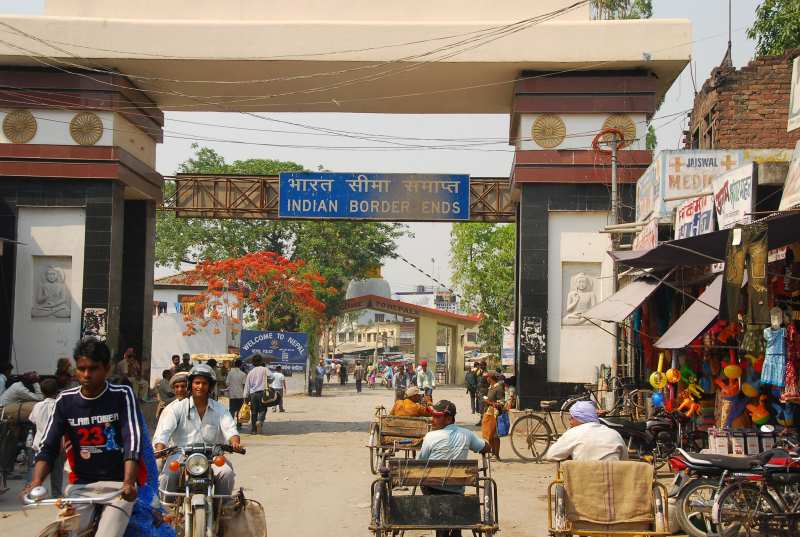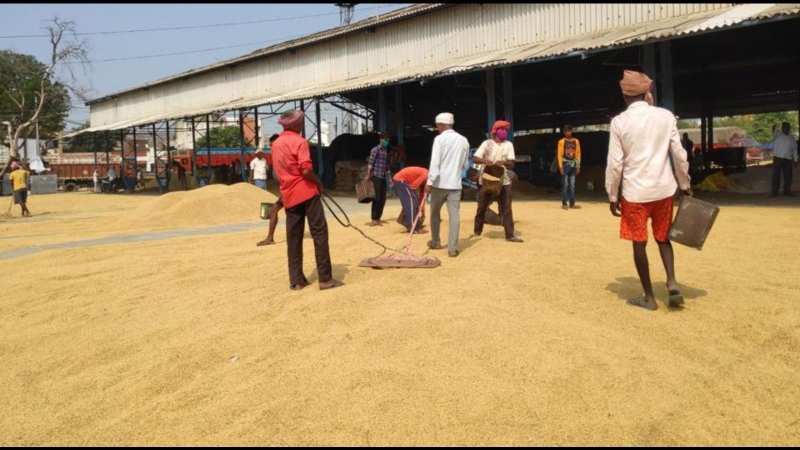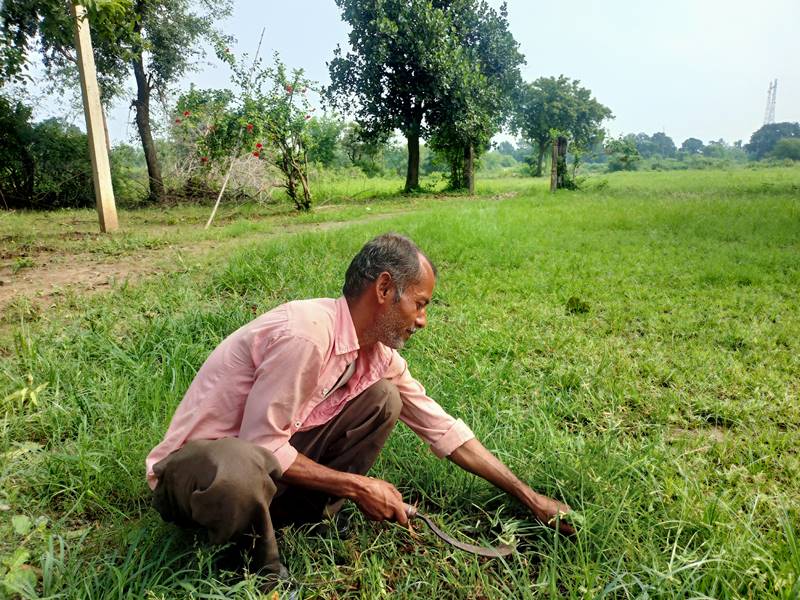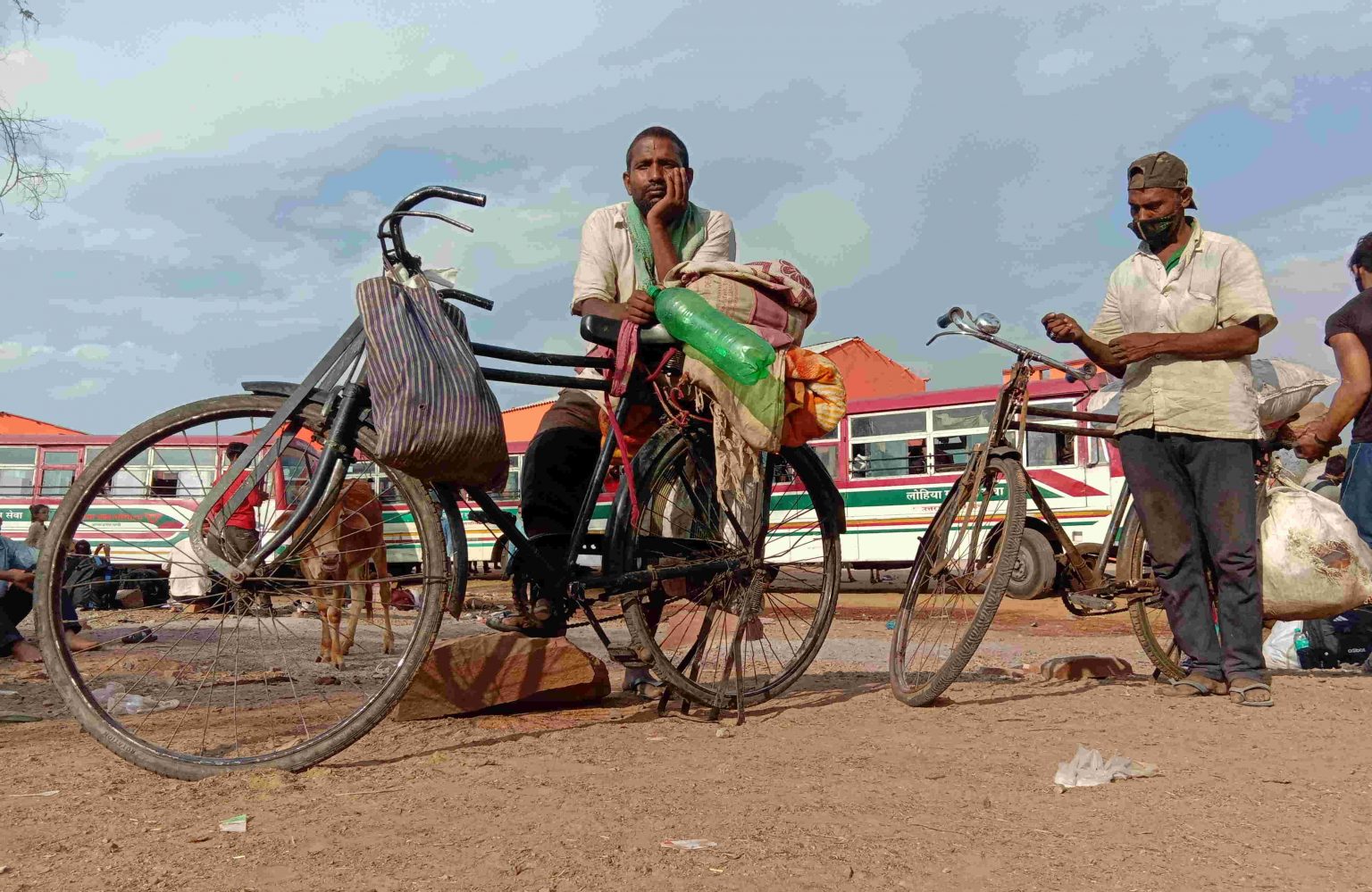COVID restrictions on sale of crops across the border to Nepal has plunged Bihar farmers into losses
Farmers in districts along the India-Nepal border in north Bihar prefer selling their farm produce in Nepal as they lack a mandi system in Bihar. However, restrictions on the movement of goods across the international border, since the beginning of the COVID19 pandemic, has adversely affected their livelihoods. Farmers of Bihar desperately await the opening of the border to resume sales.


Restrictions imposed due to the pandemic have put a stop to the farmers in north Bihar selling their agricultural produce in Nepal. Photo by: Nishant Kumar
Sitamarhi, Bihar
It is often said that Bihar and Nepal share ‘beti-roti ke sambandh’, which means that people on either side of the international border exchange food and also get their daughters married. However, close to almost two years now, movement across the India-Nepal border is restricted and goods transportation is not allowed due to the COVID19 pandemic, which has adversely affected the livelihoods of farmers in Sitamarhi and Seohar districts of north Bihar.
Restrictions imposed due to the pandemic have put a stop to the farmers in north Bihar selling their agricultural produce in Nepal. Desperate villagers from the border districts of Sitamarhi and Seohar sometimes try to enter Nepal illegally with their crops through unguarded areas in the international border in the hope that they will get a fair price from their paddy, pulses and wheat in Nepal than in the mandis of Bihar.
“I have no other source of income and my family of eight depends on our land produce. Whatever I produce, we consume more than half of it and the rest we sell in the Nepali market,” Ashok Kumar, a marginal farmer from Sonbarsa village of Sitamarhi district, who owns less than one hectare land, told Gaon Connection. “Since the Nepal border has been closed, I have not been able to sell my produce in Nepal and have been relying on the local market where we don’t get a decent profit,” he added.
For instance, paddy, which in the best possible scenario fetches Ashok Rs 1,750 per quintal in the local market (provided it is of very good quality and not deteriorated post the monsoon season rainfall), is sold for Rs 1,950 per quintal in Nepal. Often, farmers in Bihar do not receive more than Rs 1,200-1,400 per quintal for it.
A major source of income for farmers in Bihar comes from the profit they earn by selling their farm produce in Nepal. Before the pandemic, there was another blockade enforced by the Government of India, which lasted eight months in 2015, and had adversely affected these cultivators.

Abolition of APMC Act in Bihar
In 2006, Bihar abolished the Agricultural Produce Market Committee (APMC) Act and ended the mandi system in the state. It set up local bodies – Primary Agricultural Credit Society (PACS) – to buy farm produce. These bodies have been charging one per cent of the selling price of the commodity as a facilitation charge from both the farmers and buyers (private traders). There are several problems with the functioning of these PACS because of which farmers are forced to sell their produce to private traders and middlemen at a rate far below the minimum support price (MSP) fixed by the central government.
“Farmers have had to sell their produce to private procurers at throwaway prices,” Abhishek Ranjan, sociologist at Patna-based AN Sinha Institute of Social Studies, told Gaon Connection. “For 15 years now, farmers have not had a favourable market for their produce. Paddy has sold for Rs 900-1,000 a quintal in Bihar, almost half the Rs 1,868 fixed as MSP by the Centre,” he said.
Also Read: Why it is important to learn from Bihar’s APMC abolition in 2006
Experts believe after the repeal of the APMC system, farmers in Bihar have been indulging in distress sale because their produce would go to waste due to a lack of proper storage facilities.
No storage facilities
Sunita Devi, sarpanch of Sonbarsa village in Sitamarhi district, said: “The blockade in 2015 imposed by the Indian government for months has hit the local community the most. Their long-standing demand for cold storage for the area has been pending with the state government for years now.”

In Sitamarhi town, where five cold storages have been sanctioned, only one is functioning, the sarpanch informed. As a result, farmers are forced to sell perishable items like vegetables in villages or have to consume them.
Kamla Devi, Block Development Officer of Dumri block in Sitamarhi district, said, “Since Sitamarhi district comes under a flood-prone area, there is hardly anything that the government can do.” But she acknowledged that local bodies (PACS) take time to buy rice and pulses, and delay the disbursement of money to the farmers. That is why the farmers prefer to sell their produce in Nepal, she said. “Land for a cold storage unit to store farm produce has been purchased, and the construction work will begin shortly,” she added.
Also Read: Rice racket: From the paddy fields of Bihar to the mandis of Punjab
Poor road connectivity
According to the villagers, road connectivity between border areas and major towns in north Bihar is in shambles and hinders the transportation of agricultural produce. Ashok Kumar complained that it takes about three hours to cover the 30-km distance from Sonbarsa village to Sitamarhi town. Also, north Bihar being India’s most flood-prone area, every year due to flood the connectivity is hindered for more than two months.
“We struggle every year after the monsoon to sell our rice in Sitamarhi market due to flooding and bad roads. We have to pay a large part of the profit into transportation as we travel fifty kilometres to reach the town,” complained Ashok Kumar of Sonbarsa village in Sitamarhi. “We are forced to sell our produce to private procurers at a price quoted by them and many times at minimal profit,” the farmer added.
Rajesh Singh, another farmer from Sonbarsa village in Sitamarhi, said, “The Sitamarhi district is a flood-prone area and every year our village gets flooded, so we cannot store our grains for long. The Nepal market is beneficial not only for good profit but also because of easier connectivity.”
Migration workers’ woes
Abhishek Ranjan said COVID-19 has put a lot of stress on land as residents of Bihar have migrated back from big cities like Delhi and Mumbai. People are finding it difficult to get jobs during this period of time and a major chunk will have to work in the field as farm labourers.

Also Read: What forces landed farmers from Bihar to work as migrant labourers elsewhere?
Bhola Gupta, a daily-wage worker from Piprahi village in Seohar district, said, “Finding work in towns is more difficult now, and we are paid less for the same work that we did before [the pandemic].” The worker went on to add: “I have returned to my native village after facing a lot of trouble in Delhi where I used to work. I will not leave Bihar even if I have to work in the fields.”
The daily wager complained that work under MGNREGA (Mahatma Gandhi National Rural Employment Guarantee Act) was not easy to get. And not much construction work is happening either in the villages or in towns.
With Nepal blaming India for the rise in former’s COVID-19 cases, firing along the border in March this year, and Nepal claiming Indian territory as its own, there is no assurance for the farmers in Bihar about the opening of the international border for goods transportation. Meanwhile, Ashok Kumar, a marginal farmer, will be forced to continue accruing losses on his harvest of hard labour.

